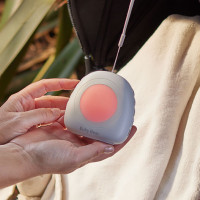As many as 50% of women will experience the unpleasantness of a urinary tract infection (UTI) in their lifetime, and 20-50% will have a UTI more than once.[1,2] If you contribute to this significant statistic, it may be in your interest that there is a range of natural remedies demonstrating the ability to keep UTIs at bay.
Why do you get UTIs?
As females, our anatomy makes us more likely to acquire a urinary tract infection. Why? Compared to the male urethra, the female urethra (the tube that connects the bladder to the genitals) is shorter in length, making it easier for undesirable bacteria to enter the bladder. This can be encouraged by sexual intercourse and poor toilet hygiene, such as wiping from back to front.
Between 70-95% of UTIs are due to the presence of E. coli.[3] Although this bacteria is naturally present in our bowel, in the instance of a UTI, it colonises the urethra and the areas surrounding it, before entering the bladder, where infection takes place. [3,4]
How do you know you have a UTI?
A UTI can present with a range of symptoms [5]:
- Pain and/or a burning sensation when you urinate
- Frequent urination
- Incontinence (involuntary urination)
- Blood in the urine
- Pain above pubic bone
- Unpleasant smelling and cloudy urine
- New discharge, or changes to discharge
- Irritation such as itching and burning in the vagina
UTI diagnosis and conventional treatment
A mid-stream urine test determines whether pathogenic bacteria is present. If anconv infection is detected, antibiotic treatment is provided, and may be administered as a preventative measure in women who experience the inconvenience and discomfort of frequent UTIs.
Herbal remedies that may assist in alleviating UTIs:
Cranberry may make your lips pucker, but scientific research shows that this fruit can be helpful for UTIs due to its high content of ‘proanthocyanidins’ (PACs). [6] These compounds have demonstrated the ability to inhibit E. coli from adhering to the urinary tract lining. [6,7] If you want to give a cranberry supplement a try, check that it has a minimum dose of 36 mg of PACs; according to a gold standard research review, this amount in divided doses provides optimum benefits, allowing the PACs to continuously prevent E. coli from adhering to the urinary tract wall over a 24 hour period. [8]
Vitamin D extends far beyond bone health; this complex vitamin might also decrease your UTI risk due to its role in immunity. [9] Vitamin D is responsible for activating the formation of ‘cathelicidin’, an antimicrobial agent secreted by cells in the bladder lining upon exposure to E. coli. [13]
Pomegranate has a powerful antioxidant and antimicrobial role in UTIs thanks to its ‘ellagic acid’ content.[10] This compound has demonstrated the ability to prevent E. coli growth and proliferation by inhibiting replication of its DNA, as well as its adherence to the lining of the urinary tract. [11]
Probiotics can help assist against UTIs. The vagina contains around 50 different bacterium, influenced by several factors, such as age, hormonal changes and vaginal pH.[2] An imbalance of ‘desirable’ and ‘undesirable’ vaginal bacteria may contribute to the development of a UTI [2]; This is where probiotics come in…The Lactobacillus probiotic species have demonstrated the ability to regulate vaginal flora[2] and produce lactic acid, which prevents nasty bacteria from colonising in the urogenital tract. [12]





















1:31 pm
3:36 pm
11:24 am
10:51 pm
5:06 pm
5:35 pm
1:21 pm
8:36 pm
9:11 pm
7:16 pm
8:49 am
8:37 am
10:41 pm
1:03 am
9:14 pm
- 1
- 2
- …
- 8
- »
Post a comment